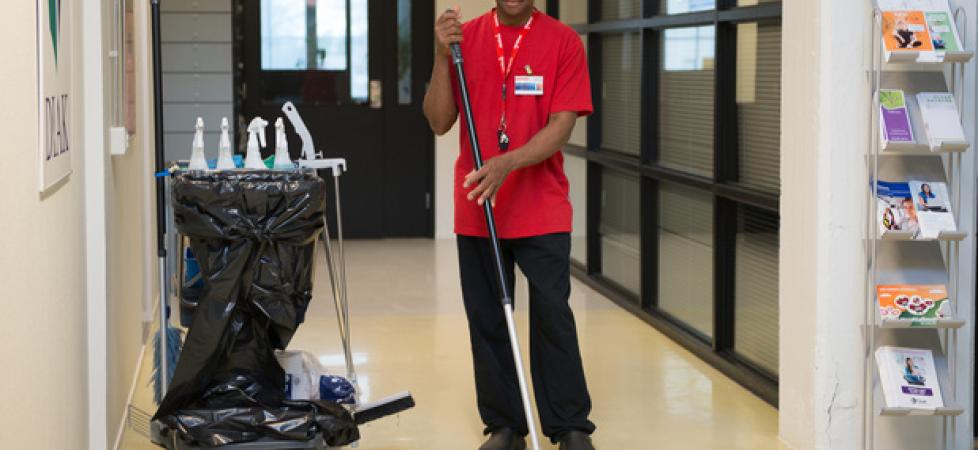
Towards working life
It's important to keep in mind that the language of the Finnish working environment is Finnish. Work places in which the working language is English consist of a small minority of all work places. In order to be employed in Finland, you must learn the Finnish language.

Integration plan and training for immigrants
When you settle in your municipality, register at your local Employment and Economic Development Office (TE office) as a job seeker. The officials will assist you with matters concerning employment and job training, and you will receive information about vacancies. As an immigrant, you have the right to the same services as the Finnish citizens.
As a quota refugee you are entitled to an integration plan for the first three years of your residence in Finland. The integration plan is designed in cooperation between you, a social worker and an official of TE office in your municipality of a residence. Firstly, and an initial assessment will be made on your education background, work experience and language skills. Therefore it is important to bring all possible education and work certificates along with you to this assessment, and to make a list of all of your previous work experience.
On the basis of the initial assessment, an integration plan will be designed for you and your family members. This will include a plan for the Finnish language studies, traineeships, a preparatory training for working life, and a vocational training. A plan for children and youth regarding their preparatory and basic education will also be recorded. It is obligatory to participate in the design of the integration plan for the immigrants, as well as to participate in the activities agreed upon in the integration plan. An integration plan is usually made for one year at a time.
Adult immigrants usually begin their integration programme with a training period, which focuses on Finnish language studies. Children and youth start their basic studies in preparatory classes in comprehensive schools, and later on, continue their studies in the mainstream comprehensive education. If there are small children at home, a flexible integration training programme can be provided for the mother.

Job searching
Seeking employment in Finland requires personal activeness and networking, even though immigrants are supported in the process. The TE office provides information about suitable vacancies and offers assistance with preparing job applications and cover letters already during your integration training.
It is very useful to prepare a Curriculum Vitae (CV) and learn how to search for vacancies on the internet, e.g. though the Ministry of Employment and the Economy's pages. It is also important to write job application and cover letter models in Finnish and have them proofread.
Think carefully about your current skills, know-how, and what you would like to do. A work position in Finland will offer you new friends, colleagues, and additional opportunities to improve your Finnish skills. It will also provide you with interesting new tasks, meaningful contents and a needed daily rhythm. Many work places also offer health and sports services for their employees. It is worth accepting a job even if it does not exactly correspond with your skills.
Only a limited number of vacancies are posted on open searches in Finland. That's why networking with friends and acquaintances offer the best channels for information on available vacancies. These days, most job applications are made online, which requires sufficient technical skills and knowledge of Finnish.

Workers' obligations and rights
An employee works normally 40 hours per week and 8 hours per day. However, the exact amount of hours vary according to the professional field. Working overtime is agreed upon separately with the employer. Belonging to the worker's union of your particular professional field is optional in Finland. The unions offer legal advice to their members in conflict situations, as well as assistance in matters regarding work-related conditions and practices.
When starting at a new job, a written contract is made between the employer and employee in which the work tasks, conditions and payment are agreed upon. The type of a contract may be an on-going or for a fixed period of time. The employer is obligated to provide occupational healthcare services and take care of pension payments for the employee.
An employee pays taxes for his work. You must provide your employer with your tax deduction card, which shows the taxation rate to deduct tax from your salary. You can get the tax deduction card from the tax office or via the internet pages of the tax office.
You must inform your manager if you are dissatisfied with your working conditions. If you feel that you are not being heard, you may request the presence of the workplace steward or the work safety representative along for negotiations with the manager. Work-related problems can also be discussed with the occupational health nurse or doctor.
Bullying, segregation or e.g. sexual harassment at the work place is not allowed in Finland. If you feel being harassed in any way, report it to your manager or occupational health doctor immediately.
Jobs are contract-based for the most part, but even in Finland there exist so-called ”shadow economy” jobs for which no written contracts are made nor taxes paid. An immigrant should avoid these types of jobs. Underground, tax-free jobs are illegal in Finland, and in them the workers' legal position is weak. Acceptable and legal tax-free incomes in Finland come from e.g. berry-picking and bottle-collecting only.
It is important to remember that a vocational or professional education and a strong command of the Finnish language will strengthen and ensure your position in formal labour markets.

Finnish work culture
In comparison to many other countries and cultures, the Finnish work culture is an egalitarian and self-directed one of a type. Employees and employers often call each others with first-names. Employers will not always oversee the employees' work. Instead, workers are given tasks and are expected to carry them out independently. If the worker cannot or does not know how to accomplish the task at hand, he or she should go directly to the employer for instructions. In the Finnish work culture, it is important that issues agreed upon are complied with.
It is also important to comply with schedules in Finland. In general, one always comes to work at the appointed time. Set time 8 a.m. means exactly 8 a.m., and not 8.10 a.m. Being late is considered impolite, since other people have to wait for the person being late. If you know that you will be late, it is considerate by Finnish standards to inform others in advance. If your working hours are flexible, you must take care of that the fixed amount of working hours are fulfilled.
Finns usually discuss work matters directly at the workplace, and this is not considered impolite. For example, if an employee realizes that he or she will run out of time for a certain task, the employer is informed directly. During meetings, after a short greeting, participants immediately go to the matter at hand. The employer might not ask how the employee is doing. For this reason, Finnish communication may at first seem impolite from an immigrant's perspective.
Religious rituals are rarely part of Finnish workplaces. For Finns, religion is mostly a personal matter which belongs outside of the workplace. Spaces for prayer have been arranged at some workplaces if several employees have requested it. If an employee wants to have a moment to pray in the middle of the working day, it must take place during the fixed breaks. Visible religious symbols such as head scarves are permitted in Finland, but workplace dress codes assigned for e.g. safety reasons must be observed. These are all matters which can be reasonably discussed with your employer.